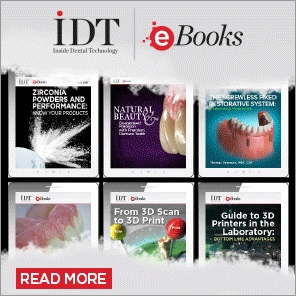Nearly half of all children suffer injury to a tooth during childhood. When trauma affects an immature permanent tooth, it can hinder blood supply and root development, resulting in a "dead" tooth.
Until now, the standard of care has entailed a procedure called apexification that encourages root development, but doesn't replace the lost tissue and, even in a best-case scenario, causes root development to proceed abnormally.
New results of a clinical trial, jointly led by Penn Dental Medicine's Songtao Shi and his colleagues in China, suggest that there is a more promising path for treating these types of childhood injuries: using stem cells from the patient's baby teeth. The work appeared in Science Translational Medicine.
Shi, professor and chair of Anatomy and Cell Biology, has been working for a decade to test the possibilities of dental stem cells after discovering them in his daughter's baby tooth. He and colleagues have learned more about how these dental stem cells, officially called human deciduous pulp stem cells (hDPSC), work, and how they could be safely employed to regrow dental tissue, known as pulp.
The Phase 1 trial was conducted in China. The 40 children enrolled had each injured one of their permanent incisors, and still had baby teeth. Thirty were assigned to hDPSC treatment and 10 to the control treatment, apexification.
Those who received hDPSC treatment had tissue extracted from a healthy baby tooth. The stem cells from this pulp were allowed to reproduce in a laboratory culture, and the resulting cells were implanted into the injured tooth.
Upon follow-up, patients who received hDPSCs had more signs of healthy root development, thicker dentin and increased blood flow. A year following the procedure, only those who received hDPSCs had regained some sensation. Examining a variety of immune-system components, the team found no evidence of safety concerns.
"The results are very exciting," Shi says. "To see something we discovered take a step forward to potentially become a routine therapy is gratifying."
Shi and colleagues are beginning to test the use of cells donated from another person to regenerate dental tissue in adults. They are also hoping to secure FDA approval to conduct clinical trials using hDPSCs in the United States.
Eventually, they see even broader applications of hDPSCs for treating systemic disease, such as lupus, which Shi has worked on before.




